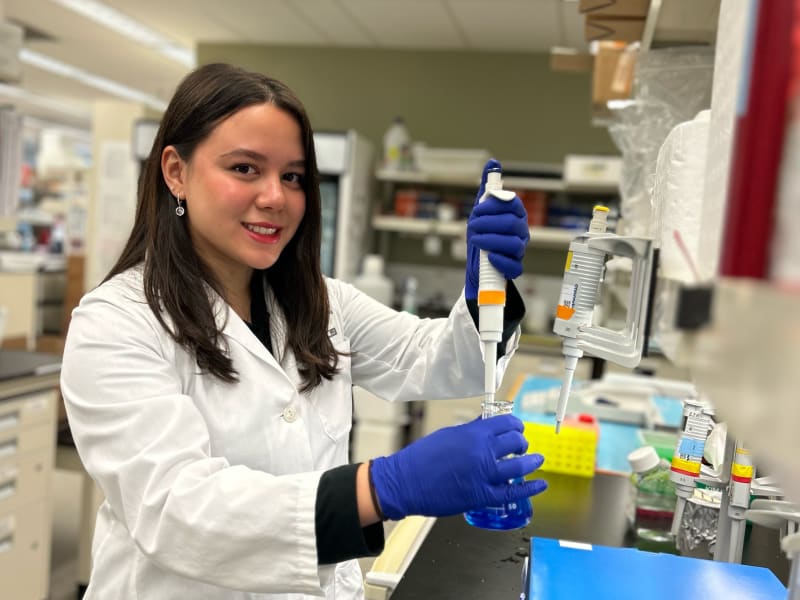
Vanessa Gyorffy, an undergraduate student in McMaster’s prestigious Arts and Sciences/Biology Combined Honours Degree Program, has spent the summer doing translational research at Niagara Health.
A partnership with the Canadian Critical Care Trials Group (CCCTG) Network of Networks is fostering significant research at Niagara Health this summer.
Dr. Jennifer LY Tsang, Niagara Health Knowledge Institute Executive Director and Chief Scientist, says they are incredibly excited to have a student exploring a simpler way of collecting biological samples for translational research.
Vanessa Gyorffy, an undergraduate student in McMaster’s prestigious Arts and Sciences/Biology Combined Honours Degree Program, has been working in the research laboratory of Niagara Health’s close collaborator at the Thrombosis and Atherosclerosis Research Institute (TaARI) in Hamilton. Dr. Tsang says the results of the study could be widely cited, changing the way translational research is performed.
Translational research, in essence, takes research done in the laboratory and uses it to develop new ways to diagnose and treat disease. It ultimately acts as a bridge between basic research and results that directly benefit people, taking the research from the laboratory ‘bench’ to the ‘bedside.’
“In a community hospital, it is a bit more challenging to do translational research,” explains Dr. Tsang, “because we don't have the capacity to process and temporarily store biological samples that we collect from patients in community or rural hospitals.”
Dr. Tsang wants to know if they can overcome that challenge by collecting the sample without any local processing and immediately shipping it off to a larger hospital with adequate facilities for processing and long term storage.
“We want to know with that approach, would the sample be degraded?”
That’s where Gyorffy, who received an undergraduate studentship in collaboration with the Canadian Critical Care Trials Group (CCCTG) Network of Networks, comes in. She has been comparing patient samples that are collected and processed right away appropriately at the site, versus samples that are collected but not processed for up to 72 hours after the collection.
“We want to know if there's any major difference,” says Dr. Tsang. “This could potentially revolutionize how translational research is done. It could also possibly allow community and rural hospitals to begin participating in translational research.”
Dr. Tsang says this is extremely important for the future of research in Canada.
“Most patients receive care in community hospitals. If research is only done in academic hospitals, we’re missing out on so much research potential and slowing down research,” she explains.
Dr. Tsang has published multiple papers on the importance of community hospital research, noting that 90 per cent of hospitals in Canada are community hospitals.
Results from the Gyorffy’s study will be available in a matter of days.

